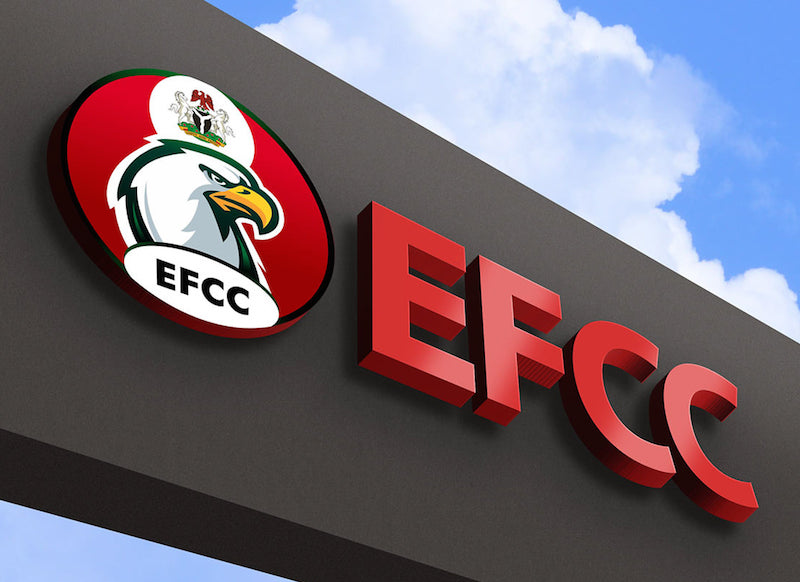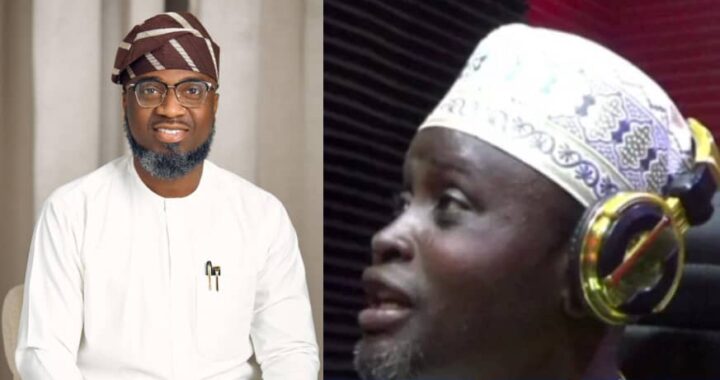The Supreme Court has dismissed suit instituted by some state Attorneys General challenging the establishment of the Economic and Financial Crimes Commission (EFCC) Act.
The suit, which was initially instituted by attorneys general of 16 states, sought the scrapping of the anti-graft agency. While some states withdrew from the suit, some others asked to be joined as co-plaintiffs.
The states that initiated the suit include Ondo, Edo, Oyo, Ogun, Nassarawa, Kebbi, Katsina, Sokoto, Jigawa, Enugu, Benue, Anambra, Plateau, Cross-River and Niger.
However, at the resumed hearing on October 22, Imo, Bauchi, and Osun states joined the suit as co-plaintiffs while Anambra, Ebonyi, and Adamawa states announced their decisions to withdraw their suits.
The trio’s suits were struck out, accordingly, by the court.
‘Unconstitutional’
In their argument, the 16 states relied on the fact that the Constitution is the supreme law and that any law that is inconsistent with it is null and void.
The plaintiffs had argued that the Supreme Court, in Dr. Joseph Nwobike Vs Federal Republic of Nigeria, had held that it was a UN Convention against corruption that was reduced into the EFCC Establishment Act and that in enacting this law in 2004, the provision of Section 12 of the 1999 Constitution, as amended, was not followed.
They argue that the provision of Section 12 must be complied with in bringing a convention into Nigerian law.
According to them, based on the Constitution’s provision, the majority of the state Houses of Assembly needed to agree to bring the convention in before passing the EFCC Act and others, but that was allegedly never done.
The states argued in their suit that the law, as enacted, could not be applied to states that never approved of it, in accordance with the provisions of the Nigerian constitution.
Hence, they argued that any institution so formed should be regarded as illegal.
‘Nigeria can’t survive without EFCC’
Defending EFCC’s existence, the agency’s Director of Public Affairs Wilson Uwujaren, had maintained that without the anti-graft commission, Nigeria will crumble under corruption.
“We are really shocked by what is happening,” Uwujaren said on Monday’s edition of Channels Television’s breakfast show The Morning Brief on October 21.
“Nigerians should see through this shenanigan and oppose it because I don’t see how this country can survive without the EFCC with the kind of corruption problem that we have. Nigeria cannot do without the EFCC.”
Uwujaren claimed those behind the challenge are “feeling the heat” of EFCC’s work and do not want to be held accountable.
‘EFCC Has Come to Stay’
While the controversy on the legality of EFFC went on, human rights lawyer Femi Falana faulted the move by some states and believes measures to ensure the commission is not under the control of the government should be mapped out.
“For me, the ICPC and the EFCC like the Code of Conduct Tribunal have come to stay. What we should be demanding are measures to make these institutions autonomous, not under the control of any government,” Falana said on Channels Television’s Politics Today on October 20.
“And the Supreme Court has maintained rather repeatedly concerning the EFCC and EFCC; that these are common, they shouldn’t be under the control of the Federal Government.
“They are common agencies to fight economic crimes in our country, to fight financial crimes in our country, to fight corruption in our country.”
‘Unconstitutionally established’
Earlier, a Senior Advocate of Nigeria (SAN) Olisa Agbakoba had written to the National Assembly and argued that the EFCC was “unconstitutionally established”.
“I will go further to say that I very strongly believe the EFCC is unconstitutionally established. The powers under which it was established go beyond the powers of the National Assembly. The EFCC is an unlawful organization,” the renowned lawyer wrote in separate letters to the Senate and the House of Representatives.
“I am very delighted to note that many states have finally taken it upon themselves to challenge the constitutionality of the EFCC. This will put to rest the question relating to the validity of the EFCC.”
WARNING: If You Are Not 18+, Don’t Click The Link Below 👇🫣
https://headacheaim.com/kx6iepv2qm?key=6c14bd1d68e1eba721851f19778f5efe
Please don’t forget to “Allow the notification” so you will be the first to get our gist when we publish it.
Drop your comment in the section below, and don’t forget to share the post.
Never Miss A Single News Or Gists, Kindly Join Us On WhatsApp Channel:
https://whatsapp.com/channel/0029Vad8g81Eawdsio6INn3B
Telegram Channel:
https://t.me/gistsmateNG





